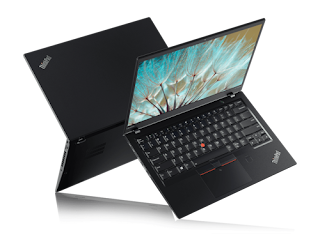Having a dependable laptop is essential in today's digital
world for both business and recreation. It might be difficult to decide whether
to purchase a new laptop or a used one, though. We'll look into the crucial
factors you should take into account when choosing between a new or used laptop to help you make an informed
decision.
Processor: Opting for
Performance
The CPU is one of the vital parts that has a big influence
on your laptop's performance. The most recent CPU on the market is often found
in a new laptop, guaranteeing excellent performance and compatibility with
cutting-edge applications. A used laptop, on the other hand, can have an
outdated processor, which could result in inferior performance or
incompatibility with the most recent software upgrades. Because of this, it's
crucial to be sure that a used laptop's CPU can still handle the particular
software needs you want.
RAM: Boosting
Multitasking Abilities
The ability of a laptop to multitask is greatly influenced
by its Random Access Memory (RAM). A new laptop often comes with a larger
quantity of RAM than a used one, enabling easier multitasking and the capacity
to run numerous apps at once. It's crucial to remember that a used or Second hand laptop could still have
enough RAM for your needs, particularly if your use demands aren't too
rigorous.
Storage: Speed and
Capacity Matters
The kind and capacity of the drive can have a big impact on
overall performance when it comes to storage. A quick Solid-State Drive (SSD),
which combines speed and efficiency, is often found in a modern laptop.
However, a used laptop can have a slower Hard Disc Drive (HDD) or an older SSD,
which could have an effect on performance. Think about the storage's capacity
and kind to see if it satisfies your demands.
Graphics: The
Importance of Dedicated Graphics
Having a dedicated graphics card is essential for people who
engage in graphically demanding activities like video editing or gaming. Modern
laptops frequently have better graphics cards, making such tasks go more
smoothly. However, it's crucial to confirm that a used laptop's graphics card
suits your unique needs, since older models might not be able to handle
demanding apps.
Display: Clarity and
Resolution
Another crucial aspect to take into account is the laptop's
display quality, especially if your activities need a high-resolution screen.
Compared to their used counterparts, new laptops often have better resolutions
and screens. This may greatly improve your entire experience, especially while
working on projects like graphic design or video editing.
Ports: Connectivity
Considerations
For seamless connectivity, your laptop must have all the
necessary connectors. Make sure the used laptop you're thinking about has all
the necessary ports, including USB, HDMI, and audio jacks. Older laptops might
not have the most recent ports, which can restrict your ability to connect to
external devices. Before making a choice, consider your connectivity needs carefully.
Battery: Endurance
Matters
Particularly if you're constantly on the go, battery life is
an important consideration. Compared to used computers, new ones often have
healthier batteries that last longer. Remember that a used laptops age and use can have a big
impact on how long the battery lasts. Therefore, before making a purchase,
carefully examine the battery's condition.
Price: Balancing the
Budget
Even though used laptops are sometimes more inexpensive,
it's important to think about unforeseen expenses. Most brand-new laptops come
with warranties, giving you piece of mind. In contrast, used laptops could not
have this protection, which could result in future expenditures for upgrades or
repairs being greater. When making a decision, consider the immediate cost
reductions vs prospective future costs.
Condition: Assessing
Wear and Tear
Make sure to give a used laptop a full physical inspection
before buying it. Examine the device for evidence of wear and tear, missing or
broken parts, and any keyboard or display abnormalities. The performance of the
laptop as a whole as well as your user experience may be considerably impacted
by these elements. To prevent future problems, choose a laptop that is in good
physical condition.
In conclusion, your individual demands and financial
situation will determine whether you should buy a new or used laptop. You may
make a decision that satisfies your needs by carefully weighing the
aforementioned variables.



No comments:
Post a Comment